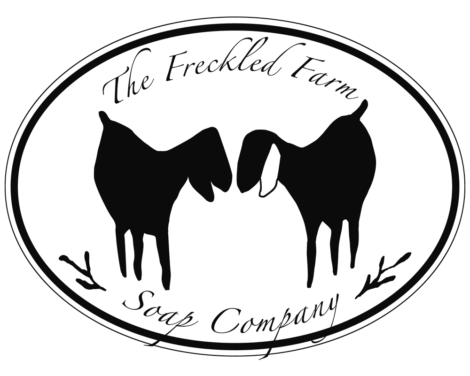We often have customers ask us what makes our goat milk soap different from the bars they get at the store. The answer they get is probably more than they asked for, but it’s something we’re passionate about. So here goes.
Aside from the obvious difference that ours is Goat Milk Soap, what you typically find in stores in the form of a bar soap is actually not soap at all. The major chemical companies that make up your major brand “soaps”, deodorants, toothpastes, etc have carefully marketed their products to look like soap and most people refer to these as soap. In fact if you look at the labelling these products do not contain the word soap anywhere on their label. They call themselves moisturizing bars, beauty bars, etc. but not soap. The reason for this is that the Food and Drug Administration has a pretty strict guideline for what constitutes soap: “To be regulated as “soap,” the product must be composed mainly of the “alkali salts of fatty acids,” that is, the material you get when you combine fats or oils with an alkali, such as lye.”
The major chemical companies worked very hard to make products that were cheap, plentiful, and easy to manufacture. They took a bunch of synthetic chemicals like lathering agents and detergent cleansers in order to mimic soap. Many of these detergent bars are missing glycerin (a natural byproduct of the natural soap-making process), and other beneficial properties of real soap.
The following is a list of some of the chemicals that are found in these detergent cleansers. The best way to avoid these chemicals is to use natural soap like ours:
Triclosan: a key ingredient in antibacterial products. According to the FDA: “Animal studies have shown that triclosan alters hormone regulation.” and “Other studies in bacteria have raised the possibility that triclosan contributes to making bacteria resistant to antibiotics.”
Propylene Glycol: a petroleum-based product that is dangerous when inhaled, an irritant, and a metabolic disruptor. Known to exert high levels of biochemical oxygen demand (BOD) during degradation in surface waters. This process can adversely affect aquatic life by consuming oxygen needed by aquatic organisms for survival.
Polyethylene Glycol: can be a skin sensitizer, resulting in allergic contact dermatitis in some individuals.
Sodium Lauryl Sulfate: causes skin irritation, there are studies that point to residual levels of Sodium Lauryl Sulfate in the brain, lungs, liver, and heart. It has been linked to hormone imbalance because it mimics Estrogen.
Butylated Hydroxytoluene: acts as a synthetic vitamin E. It is absorbed through skin. Long-term and repeated exposure caused renal and hepatic damage in rats.
So how can you avoid chemical’s? By using OUR SOAP! Alkali salts of fatty acids from all natural vegetable oils which are formed when those oils are mixed with lye. The lye is not existent after the chemical reaction with the fatty acids in the oils and is no longer present in the final product. Then we add essential oils (literally the oils of the natural product itself) of things like lavender, tea tree, etc. And of course there is the goat milk, which comes directly from our small diary goat farm. We never add anything that isn’t natural and necessary for a great bar of soap.
